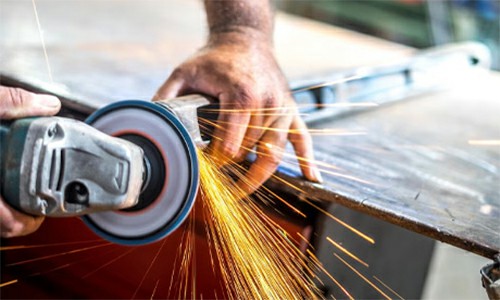


 349,500 Offered Certificates
349,500 Offered Certificates
 24/7 Online Training
24/7 Online Training
 Money Back Guarantee
Money Back Guarantee
 Fully Accredited Courses
Fully Accredited Courses

Created at: 23-02-2025 01:06
Abrasive wheels are essential tools used in various industries, including construction, manufacturing, and metalwork. Their primary function is to shape, grind, or cut hard materials through the action of abrasive particles. This blog post provides a thorough overview of abrasive wheels, their types, associated risks, safety measures, and the importance of certification in ensuring workplace safety.
Abrasive wheels are round tools made from abrasive materials that are used with grinding machines to grind, polish, or cut materials. These wheels can vary in size, hardness, and abrasive material, impacting their suitability for different applications. Common types include:
Abrasive wheels are used in a variety of settings, including:
While abrasive wheels are incredibly useful, they also pose several hazards that need to be managed properly:
In Ireland, the use of abrasive wheels is governed by strict health and safety regulations. Employers must ensure:
Obtaining an Abrasive Wheels Certificate is crucial for anyone involved in using these tools. This certification process enhances workplace safety through:
In Ireland, numerous training options are available:
In conclusion, understanding abrasive wheels, their risks, and the importance of proper training and certification cannot be underestimated. Organizations in cities like Dublin, Cork, Galway, Limerick, and Waterford can significantly benefit from investing in certified abrasive wheels training. This proactive approach not only enhances safety but also fosters a culture of compliance and professionalism. Don't wait—enroll now and ensure a safer workplace environment for everyone!
For more information and to register for courses, contact us at [email protected].